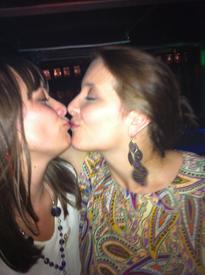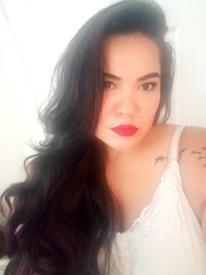The most patronising food advice you'll ever read

InstantSunshine
Posts: 355 Member
This is from our employee assistance firm's monthly newsletter. This month it seems they want us to get healthy, so eat well, don't smoke and sleep enough. No you-know-what, Sherlock. It's written down to a reading age of approximately ten, so try and stop the rage rising as you read this utterly turgid, regurgitated, derivative load of old bobbins.
"Keeping Control Of Calories
Calories can be a preoccupation for people trying to lose weight. But are they really that important? Calories can be confusing. A calorie is a unit of energy, but there are actually two types of calories: big ones and small ones. The confusion occurs because, in general, both are usually just called calories.
When scientists measure energy expenditure they sometimes do it in small calories. The scientific definition of a small calorie is the amount of energy required to increase the temperature of one gram of water by one degree Celsius.
The energy in food, however, is measured in what are sometimes called big calories or kilocalories. (One big calorie is equal to 1,000 small calories.)
Confusing big and small calories can lead to some very misleading ideas about weight loss. For example, you may have heard about the myth that drinking a lot of iced water can help you lose weight, because your body has to expend energy bringing the iced water up to your body temperature.
Sadly, it doesn’t work because proponents of this approach have taken calculations done in small calories and mistaken them for big calories. Drinking iced water will burn up some energy, but only very tiny amounts.
So if you come across an idea on a blog or website that sounds too good to be true regarding burning calories, always double check it to see if it stacks up.
You may also see the term kilojoule, which is the metric measure of energy commonly used on food labels and recipes. One food calorie equals 4.184 kilojoules.
For weight loss, the most important thing about calories or kilojoules is that once you’ve stored them in your body as fat, they need to be burned off to lose weight.
And what about calories,carbs, proteins and fats? Does it matter where you get your calories from? The answer is yes, it can.
Carbohydrates, proteins and fats have different energy densities. The greater the energy density a food has, the more calories per gram (or ounce) you get. For example fats contain around nine calories per gram, whereas proteins and carbohydrates contain around four. So, by weight, you can eat more proteins or carbohydrates than fats, for the same amount of energy intake.
But it’s not quite that simple. Food does a lot more than just provide your body with energy. Carbohydrates, proteins and fats are also building blocks for your body, which is why they are called macronutrients. They each do different (and vital) things in the body, so you need all three.
So what to do?
Focus on making a wide variety of low/moderate calorie, high nutrient foods, like vegetables, fruits and whole grains, the mainstay of your diet. Lean meats and fish are good sources of protein that can help keep you feeling satisfied with relatively small portions. And don’t forget to include a small amount of fats, particularly healthy unsaturated fats, in your diet."
So - you're saying eat your greens and don't sit on your *kitten* all day in front of the telly in your pants, stuffing crisps into your head? Blimey. Who'd have thought it?
Yes, rant over. I hate being patronised.
"Keeping Control Of Calories
Calories can be a preoccupation for people trying to lose weight. But are they really that important? Calories can be confusing. A calorie is a unit of energy, but there are actually two types of calories: big ones and small ones. The confusion occurs because, in general, both are usually just called calories.
When scientists measure energy expenditure they sometimes do it in small calories. The scientific definition of a small calorie is the amount of energy required to increase the temperature of one gram of water by one degree Celsius.
The energy in food, however, is measured in what are sometimes called big calories or kilocalories. (One big calorie is equal to 1,000 small calories.)
Confusing big and small calories can lead to some very misleading ideas about weight loss. For example, you may have heard about the myth that drinking a lot of iced water can help you lose weight, because your body has to expend energy bringing the iced water up to your body temperature.
Sadly, it doesn’t work because proponents of this approach have taken calculations done in small calories and mistaken them for big calories. Drinking iced water will burn up some energy, but only very tiny amounts.
So if you come across an idea on a blog or website that sounds too good to be true regarding burning calories, always double check it to see if it stacks up.
You may also see the term kilojoule, which is the metric measure of energy commonly used on food labels and recipes. One food calorie equals 4.184 kilojoules.
For weight loss, the most important thing about calories or kilojoules is that once you’ve stored them in your body as fat, they need to be burned off to lose weight.
And what about calories,carbs, proteins and fats? Does it matter where you get your calories from? The answer is yes, it can.
Carbohydrates, proteins and fats have different energy densities. The greater the energy density a food has, the more calories per gram (or ounce) you get. For example fats contain around nine calories per gram, whereas proteins and carbohydrates contain around four. So, by weight, you can eat more proteins or carbohydrates than fats, for the same amount of energy intake.
But it’s not quite that simple. Food does a lot more than just provide your body with energy. Carbohydrates, proteins and fats are also building blocks for your body, which is why they are called macronutrients. They each do different (and vital) things in the body, so you need all three.
So what to do?
Focus on making a wide variety of low/moderate calorie, high nutrient foods, like vegetables, fruits and whole grains, the mainstay of your diet. Lean meats and fish are good sources of protein that can help keep you feeling satisfied with relatively small portions. And don’t forget to include a small amount of fats, particularly healthy unsaturated fats, in your diet."
So - you're saying eat your greens and don't sit on your *kitten* all day in front of the telly in your pants, stuffing crisps into your head? Blimey. Who'd have thought it?
Yes, rant over. I hate being patronised.
0
Replies
-
:laugh:0
-
no, you misread the whole thing. No where in there does it say a thing about getting off your butt and moving around. Just sit on the couch and eat smarter and you'll stop being a blob of goo.0
-
This is old news to us, but I do occasionally get surprised about how little people know about this stuff. I reckon it's better to aim low and give people the basics, than aim high and have it go over more people's heads...
Though their grown up and baby calories are dumb :ohwell:0 -
Thats pretty entertaining. Talk about not trying to stir the pot. :huh:0
-
Now why didn't I think of that? There was I thinking that taking part on a site like MFP would help me, when all I had to do was watch telly and eat a bit smarter.....no, you misread the whole thing. No where in there does it say a thing about getting off your butt and moving around. Just sit on the couch and eat smarter and you'll stop being a blob of goo.0 -
I think that was a pretty decent informative piece.
Not everyone knows about eating right and it's a complicated subject. Sometimes it's nice to have things really broken down to the basics.0 -
How can I ditch those big calories and eat only small ones? :laugh:0
-
Given that this was written for a company newsletter, I don't see anything patronizing about it. It doesn't treat "you" like you don't know what you're doing, it seems like it's addressing general ideas and misconceptions - it seems like to me that it's being generally informative. I'm not making any judgment about the content, just ithe tone. For what it is, I don't see why anyone should be upset about it.0
-
How can I ditch those big calories and eat only small ones? :laugh:
Yep, I reckon that's got to be the key to it! What have we all been DOING?
haha :laugh:0 -
I think we should campaign our local MP to introduce a white paper requiring all food manufacturers to ditch hte big calories and only give us small calories....after all we need SOMEONE to tell us what to do.How can I ditch those big calories and eat only small ones? :laugh:
Don't forget - breathe in, breathe out, breath in, breathe out.....0 -
They had me at "kilojoules"0
-
That just adds to the confusion for the unenlightened - there aren't two types of calories - there are calories and a measurement of them equivalent to a thousand. I think the writer may be a little confused to,0
-
Given that this was written for a company newsletter, I don't see anything patronizing about it. It doesn't treat "you" like you don't know what you're doing, it seems like it's addressing general ideas and misconceptions - it seems like to me that it's being generally informative. I'm not making any judgment about the content, just ithe tone. For what it is, I don't see why anyone should be upset about it.
This0 -
I like how most of that was spent literally defining what a calorie is, and then only a couple sentences to tell you "now eat less of them".0
-
did you know that only 5% of calories are consumed drinking alcohol ?? so say a bottle of wine is 500 calories only 50 are digested into the body, however alcohols chemicals stop fat burning !!!0
-
HA HA HA !! This has made me smile so much! I love how the definition of calories seems to have been lifted from a dictionary and yet words like 'proponent' have been chucked in just to confuse the reader further! As you quite rightly point out...the message is pretty simple and I much prefer your version! : ))0
-
Well as you said, it was written to be easy for children to understand.
EDIT: Okay... now I realize that it was intended for adults. Well like someone else said, not everybody knows this.0 -
did you know that only 5% of calories are consumed drinking alcohol ?? so say a bottle of wine is 500 calories only 50 are digested into the body, however alcohols chemicals stop fat burning !!!
Or if you haven't been drinking first 5% of 500 may actually be 25 calories ......0 -
Confusing big and small calories can lead to some very misleading ideas about weight loss. For example, you may have heard about the myth that drinking a lot of iced water can help you lose weight, because your body has to expend energy bringing the iced water up to your body temperature.
Sadly, it doesn’t work because proponents of this approach have taken calculations done in small calories and mistaken them for big calories. Drinking iced water will burn up some energy, but only very tiny amounts.
So if you come across an idea on a blog or website that sounds too good to be true regarding burning calories, always double check it to see if it stacks up.
Just this weekend, someone gave a printout of "diet tweaks" that were supposed to increase energy burn by 500 calories a day. The very first one was to drink ice water because it takes a calorie to raise a millilitre of water one degree celsius. I think 70 calories of the 500 was based on that mistake, which is off by a factor 1000 due to the difference between "big calories" and "small calories."
I didn't pay much attention after that, but I think the second tweak was 170 calories from chewing sugar free gum for 10 hours a day. I forget where the last 260 kcals were supposed to come from.0
This discussion has been closed.
Categories
- All Categories
- 1.4M Health, Wellness and Goals
- 398.1K Introduce Yourself
- 44.7K Getting Started
- 261K Health and Weight Loss
- 176.4K Food and Nutrition
- 47.7K Recipes
- 233K Fitness and Exercise
- 462 Sleep, Mindfulness and Overall Wellness
- 6.5K Goal: Maintaining Weight
- 8.7K Goal: Gaining Weight and Body Building
- 153.5K Motivation and Support
- 8.4K Challenges
- 1.4K Debate Club
- 96.5K Chit-Chat
- 2.6K Fun and Games
- 4.8K MyFitnessPal Information
- 12 News and Announcements
- 21 MyFitnessPal Academy
- 1.5K Feature Suggestions and Ideas
- 3.2K MyFitnessPal Tech Support Questions














